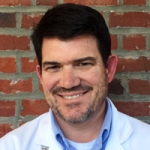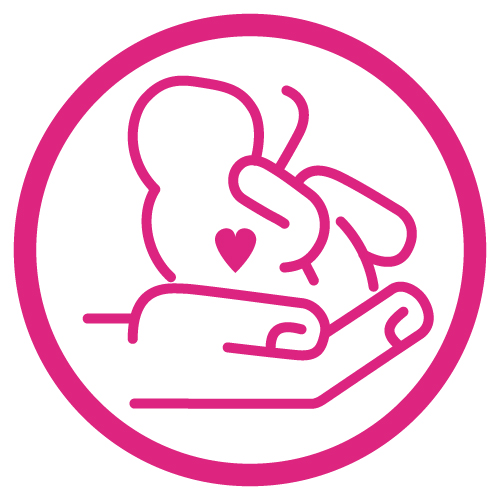 Pharmacology in the NICU Online Course(s) & Continuing Education
Pharmacology in the NICU Online Course(s) & Continuing Education
Access the latest clinical skills and research for Pharmacology in the NICU for NEONATOLOGY professional training. These Pharmacology in the NICU online courses provide practice-changing skills and valuable perspectives from leading global experts. This Pharmacology in the NICU education has been accredited for a variety of CEUs / CERPs and can be accessed on-demand, at your own pace.


Dr. Jennifer Barnes is the Neonatal Intensive Care Clinical Pharmacy Specialist at Levine Children’s Hospital in Charlotte, NC. She has over 10 years of experience within the field. Dr. Barnes received her bachelor’s degree at Virginia Tech and her Doctor of Pharmacy at Virginia Commonwealth University’s Medical College of Virginia. She completed her pharmacy practice residency at Alamance Regional Medical Center- Cone Health. Dr. Barnes is board certified in pediatric pharmacotherapy. She is also an active member of the Pediatric Pharmacy Association (PPA) and is currently serving as the neonatology committee chair. Dr. Barnes serves as a clinical assistant professor for pharmacy advanced practice rotations for University of North Carolina, University of South Carolina, Wingate University and High Point University. Her current research areas of interest include the role of diuretics in bronchopulmonary dysplasia treatment and antibiotic stewardship for late-onset sepsis amongst other topics.
Topic: Get the LOW Down on Neonatal Hypotension - [View Abstract]
Topic: Starbucks for Babies? Caffeine Use in Neonates - [View Abstract]
Many premature infants spend months within neonatal intensive care units (NICUs). During their NICU admission, typical preventive care ideally should also be addressed. The Centers for Disease Control and Prevention (CDC) recommends that infants and children be vaccinated at the recommended schedule regardless of premature birth. In this presentation, we will review the different immunizations given in the first six months of life that are most relevant to patients in the NICU. Additionally, we will compare distinctive immunogenic and tolerability aspects for the term and preterm population. There is also tremendous growth in new vaccines and viral prophylaxis options coming to market soon. This presentation will also address these new agents and how they are pertinent to the NICU population. So don’t miss your shot to further your immunization knowledge.


Ying-Tang Ng is an Assistant Professor in the Department of Pharmacy Practice at Husson University School of Pharmacy in Bangor, Maine. She received her Doctor of Pharmacy degree from Wingate University School of Pharmacy in Wingate, NC. Post graduation, Dr. Ng completed her pharmacy practice residency at Wolfson Children’s Hospital in Jacksonville, FL and pediatric specialty residency at Texas Tech University School of Pharmacy in Amarillo, TX. Prior to joining Husson University, Dr. Ng practiced at New Hanover Regional Medical Center in Wilmington, NC as a clinical pharmacist and at Children’s Hospital of Michigan (CHM) in Detroit, MI as a clinical pharmacy specialist in the Neonatal Intensive Care Unit (NICU). At CHM, Dr. Ng also served as the Post-Graduate-Year (PGY-1) residency coordinator for 1st-year residents. Dr. Ng is a Board Certified Pediatric Pharmacotherapy Specialist. She is currently an active member of the American College of Clinical Pharmacy (ACCP) and the Pediatric Pharmacy Advocacy Group (PPAG).
Extracorporeal Membrane Oxygenation (ECMO) provides support to neonates with cardiac and/or respiratory failure despite all other conventional management therapies. Neonates on ECMO are management on a variety of medication therapy including anticoagulation and antimicrobial therapy. Due to the nature of the ECMO circuit, pharmacokinetic properties of medications change which can make pharmacotherapy management challenging. Understanding these difference and changes will help maximize medication therapy in this vulnerable population.

Hold the Meds: A Guide to Toxicities of Common NICU Medications

Pavel graduated from Purdue University with a BS in Medicinal Chemistry and Molecular Pharmacology and Doctor of Pharmacy. He completed his general residency at Parkview Medical Center and Pediatric Residency at University of Chicago. He is a neonatal ICU (NICU) and antimicrobial stewardship program clinical pharmacist at Nationwide Children's Hospital (NCH) in Columbus, OH. Pavel precepts pharmacy residents and students from several colleges of pharmacy while also serving as a preceptor to international pharmacy scholars from Europe, Africa, and Middle East. He is currently involved in a multicenter study to investigate barriers, enablers and opportunities for implementing neonatal antibiotic stewardship in public and private hospitals in South Africa. He is also involved in implementation of neonatal antimicrobial stewardship programs in several hospitals in Lebanon. Pavel is the principal investigator on the study evaluating interventions to reduce antibiotic use among surgical patients in the NICU: The NO-More-AntibioticS and Resistance in Surgery (NO-MAS-R-S) Study.

Neonatal Pharmacodynamic and Pharmacokinetic Characteristics and Implications for Pharmacotherapeutic Decisions

John Brock Harris, Assistant Professor of Pharmacy, joined Wingate University School of Pharmacy in November 2012. He earned his Bachelor of Science in Chemical Engineering concentrating in Biosciences from North Carolina State University in 2002. After completing undergraduate work, he received his Doctorate of Pharmacy from The University of North Carolina – Chapel Hill School of Pharmacy in 2007. He completed his first year post-graduate education at New Hanover Regional Medical Center in Wilmington, North Carolina followed by second year post-graduate education specializing in pediatrics at Monroe Carell, Jr. Children’s Hospital at Vanderbilt in Nashville, Tennessee. Dr. Harris became Board Certified in Pharmacotherapy while completing his pediatric post-graduate work in 2009 and Board Certified in Pediatric Pharmacotherapy in 2016. Dr. Harris is an inpatient clinical practice faculty member in pediatrics at Novant Health Hemby Children’s Hospital in Charlotte, North Carolina where he has practiced for nearly 10 years.
This presentation will focus on the pharmacodynamic and pharmacokinetic principles in neonatal populations and the implications for medication selection and monitoring. We will discuss parameters related to these principles and how pharmacotherapeutic regimens are determined using them. Absorption, distribution, metabolism, and elimination of medications and the clinical impact of neonatal patient characteristics and medication properties on pharmacotherapeutic decisions will also be presented. We will also contrast medications and why medications may be preferred for some neonatal disease states due to medication characteristics. The information provided will act as a foundation for pharmacotherapeutic recommendations based on patient and mediation specific properties for neonatal disease states.


Jim Thigpen has been a pediatric clinical pharmacist for 30 years and is currently an associate professor of pharmacy at East Tennessee State University Bill Gatton College of Pharmacy. When he began his training at MUSC in Charleston, SC, they were investigating Survanta and he has been witness to and a participant in the evolving world of neonatology since. He has spoken at several neonatal nursing conferences over the years and enjoys helping other practitioners learn about and apply pharmacotherapy in this special population.
Topic: Clinical Pain Management in the Neonate - [View Abstract]
Topic: Pharmacotherapy for Hemodynamic Instability in Neonates - [View Abstract]
There are many causes of hemodynamic instability in the neonate, with up to half of very low birth weight (VLBW) infants exhibiting evidence of low cardiac output and poor myocardial contractility within the first 12 hours of life. Failure to appropriately identify and address the causes of hypotension can lead to dramatic consequences in this vulnerable population. Pharmacotherapy is employed to provide action at specific receptors that result in improved cardiac output, relaxation and vasodilation of smooth muscle, as well as specific effects on the kidneys. Although the common agents have been used for decades, there are new developments in therapy. Refinements on patient selection, managing expected side effects, and effective dosing and have continued to evolve.


Dr. Jennifer Barnes is the Neonatal Intensive Care Clinical Pharmacy Specialist at Levine Children’s Hospital in Charlotte, NC. She has over 10 years of experience within the field. Dr. Barnes received her bachelor’s degree at Virginia Tech and her Doctor of Pharmacy at Virginia Commonwealth University’s Medical College of Virginia. She completed her pharmacy practice residency at Alamance Regional Medical Center- Cone Health. Dr. Barnes is board certified in pediatric pharmacotherapy. She is also an active member of the Pediatric Pharmacy Association (PPA) and is currently serving as the neonatology committee chair. Dr. Barnes serves as a clinical assistant professor for pharmacy advanced practice rotations for University of North Carolina, University of South Carolina, Wingate University and High Point University. Her current research areas of interest include the role of diuretics in bronchopulmonary dysplasia treatment and antibiotic stewardship for late-onset sepsis amongst other topics.
Topic: Get the LOW Down on Neonatal Hypotension - [View Abstract]
Topic: Starbucks for Babies? Caffeine Use in Neonates - [View Abstract]
Caffeine is one of the most prescribed medications within the neonatal intensive care unit (NICU). This presentation will summarize the current understanding of caffeine therapy in neonates including the various indications. Caffeine is the medication of choice for apnea of prematurity (AOP) however it has been shown to be beneficial in several other disease states and conditions. Despite the widespread use of caffeine, there is not consensus on optimal dosing regimen or timing. We will review the supporting literature for the nuances of caffeine dosing regimens and schedules. While caffeine is generally considered a safe medication, we will also discuss potential side effects for monitoring. After this presentation, the audience will have a full picture of the pros and cons of this ubiquitous medication in our NICU population.










